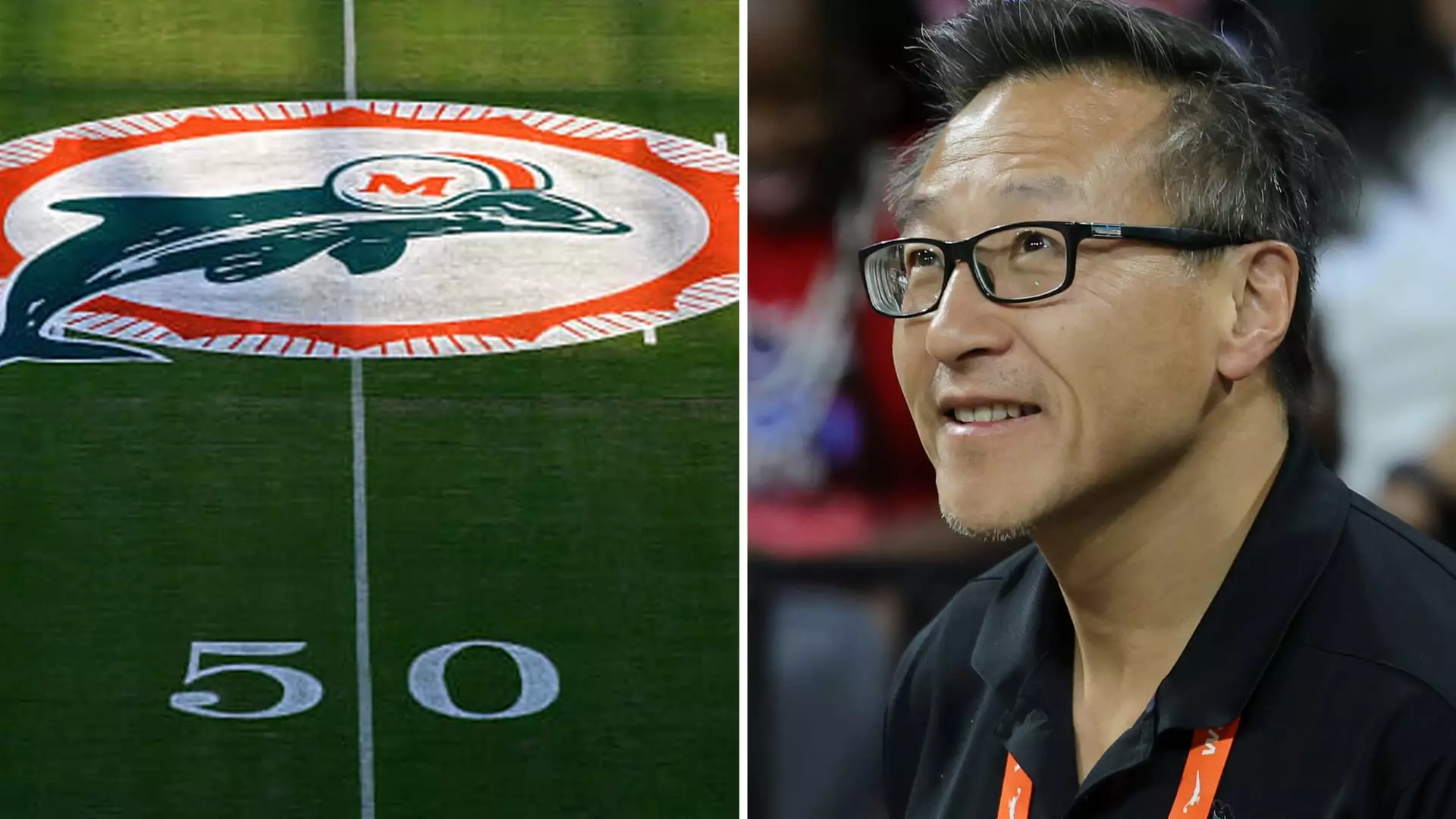The landscape of professional sports ownership is undergoing a significant transformation, with private equity firms and affluent individuals increasingly entering the fray. In a notable example, the Miami Dolphins are reportedly in advanced discussions to sell a minority stake in the franchise to Ares Management, a private equity firm, along with billionaire investor Joe Tsai. This move underscores a broader trend in the sports industry where team owners seek to diversify their investments and optimize revenue streams.
Initial reports estimate that this transaction could value the Miami Dolphins and their associated assets at an impressive $8.1 billion. This valuation includes not just the team, but also Hard Rock Stadium—the venue for numerous significant events—and the operational rights for the Miami Grand Prix Formula 1 race and roughly half of the Miami Open tennis tournament. A source close to the negotiations indicated that if one were to consider a controlling stake, the asset’s value would surpass $10 billion, highlighting the opportunity for returns in the booming sports market.
This prospective partnership represents a landmark moment as it could potentially become the first instance of private equity investment within the National Football League (NFL) since new financing protocols were established by the league in August. The Miami Dolphins are currently ranked as the eighth most valuable team in the NFL, with a valuation of $7.1 billion, excluding the assets associated with the stadium and events.
The specific dynamics of the deal point to a structured narrative of strategic investments. Ares Management is reportedly aiming to acquire a 10% stake in the Dolphins, while Tsai, who has made his mark as the owner of the Brooklyn Nets, seeks a 3% ownership stake. While the discourse regarding the deal is vibrant, no formal agreements have yet been finalized, and the timeline remains uncertain. Both the Dolphins and the NFL have opted not to comment on these discussions, signifying a level of discretion typical in such high-stakes negotiations.
Business mogul Stephen Ross purchased the Dolphins in 2009 for approximately $1.1 billion and has demonstrated a knack for leveraging his assets to enhance his portfolio—particularly in real estate in South Florida. His dual role as both team owner and stadium operator permits him to tap into supplementary revenue channels through events held at Hard Rock Stadium, significantly supplementing the team’s income. The Dolphins reportedly amassed a revenue of $673 million in 2023, demonstrating the fiscal viability of such ventures.
Interestingly, Ross made headlines earlier this year when he declined a substantial $10 billion offer for control over the Dolphins, including the associated events. His intentions of keeping the team within his family illustrate a deeper commitment to continuity and legacy in sports ownership, further distinguishing his approach compared to other franchises where ownership tends to change hands frequently.
The NFL’s decision to allow selected private equity firms to invest in its teams marks a pivotal shift in its operational landscape. Historically resistant to such financing arrangements, the league found it necessary to adapt its policies against the backdrop of escalating team valuations, which have created challenges in identifying prospective buyers. Ares Management, managing a staggering $450 billion in assets, is among the select groups permitted by the NFL to engage in these investment opportunities, reflecting the increasing financial integration of various corporate entities into sports organizations.
On the other hand, Joe Tsai, known for his executive role at Alibaba Group and a burgeoning sports empire, exemplifies a new breed of owner who is keen on expanding his influence across multiple sports franchises. In addition to the Brooklyn Nets, Tsai commands ownership of several other teams across different sporting domains, including the New York Liberty, the San Diego Seals, and collaborations with the Las Vegas Desert Dogs in lacrosse, alongside his stake in Major League Soccer with Los Angeles FC.
This multi-team ownership trend is not merely a reflection of financial strategy but also indicates a shift in how sports teams operate—creating synergies and maximizing marketing potential across various platforms. As the Miami Dolphins navigate this transitional phase, the implications of their potential deal with Ares Management and Joe Tsai could reshape the team’s future trajectory, directly impacting both its operational and financial dynamics.
As the Miami Dolphins seek to broaden their horizons through external investments, they embody the changing climate of professional sports where financial agility, strategic foresight, and a keen understanding of market dynamics become essential. The outcome of these negotiations will be closely watched as they could set a precedent for similar partnerships in the NFL and across other leagues, marking a new chapter in the evolution of sports ownership and investment.


Leave a Reply